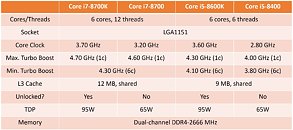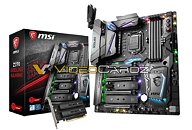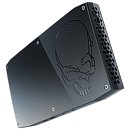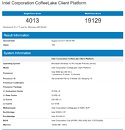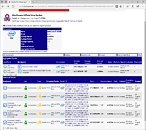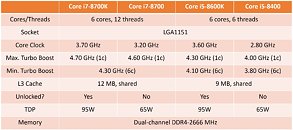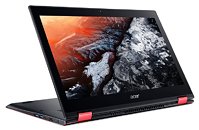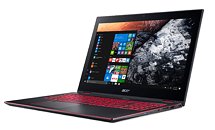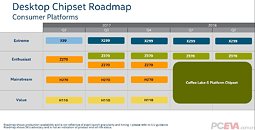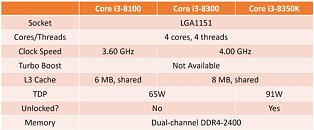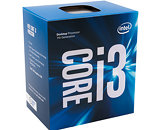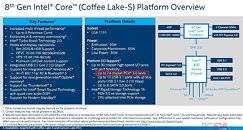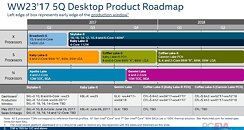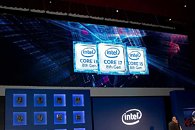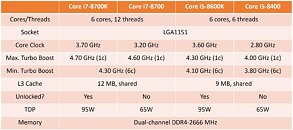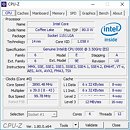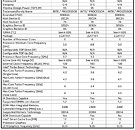
Intel Core "Coffee Lake" Desktop Processors Launch Date Revealed
Intel could launch the first wave of 8th generation Core "Coffee Lake" desktop processors in the retail channel, on the 5th of October, 2017. It's also becoming ominous that with increasing core counts across the lineup, Intel is also raising prices by anywhere between 12.5 to 25 percent. For example, the Core i7-8700K, which logically succeeds the $339 Core i7-7700K, could be priced upwards of $400. The i5-8600K, which succeeds the $249 i5-7600K, could be priced a little over $300. One can expect similar price-hikes across the board for other Core i5 six-core and Core i3 quad-core SKUs.
The first wave of 8th generation Core "Coffee Lake" desktop processor launches could be limited to certain overclocker-specific Core i7 and Core i5 SKUs. It is also launching just one compatible motherboard chipset option with this first wave, the Z370 Express, which supports CPU overclocking. Among the SKUs to look out for, are the top-dog Core i7-8700K six-core processor with HyperThreading enabling 12 threads, 12 MB of L3 cache; and the Core i5-8600K, which is also a six-core part but lacks HyperThreading, and comes with 9 MB of L3 cache.
The first wave of 8th generation Core "Coffee Lake" desktop processor launches could be limited to certain overclocker-specific Core i7 and Core i5 SKUs. It is also launching just one compatible motherboard chipset option with this first wave, the Z370 Express, which supports CPU overclocking. Among the SKUs to look out for, are the top-dog Core i7-8700K six-core processor with HyperThreading enabling 12 threads, 12 MB of L3 cache; and the Core i5-8600K, which is also a six-core part but lacks HyperThreading, and comes with 9 MB of L3 cache.
